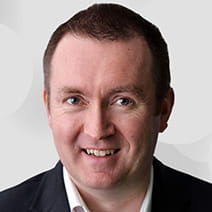Most of us are familiar with the ‘Magnificent Seven’ – the group of technology behemoths (Apple, Microsoft, Google-parent Alphabet, Amazon, Nvidia, Meta Platforms and Tesla) that have dominated US financial markets for the last two years – but perhaps less well known is Europe’s equivalent: the ‘Granolas’.
Like the Brics grouping of emerging markets (Brazil, Russia, India, China), Granolas is an acronym, first coined by investment bank Goldman Sachs, that captures a select group of Europe’s largest and fastest growing companies.
What are the Granolas?
The 11 Granolas companies are GSK, Roche, AstraZeneca, Novo Nordisk, Novartis, Nestlé, L’Oréal and LVMH, ASML, Sanofi and SAP – a group of mega-cap stocks covering healthcare, consumer goods, software and semiconductor sectors and home markets of the UK, France, Switzerland, Denmark, Holland and Germany.
Pharma: Europe’s answer to tech?
While excitement around artificial intelligence has played a key role in the Magnificent Seven’s recent domination of US market returns, Europe has sometimes been seen as a laggard in the tech revolution and is often viewed as dominated by ‘old economy’, mature, low-growth stocks such as banks. This perception seems unfair. Not only does Europe have its own tech powerhouses in the form of companies such as German software group SAP and Dutch semiconductor equipment supplier ASML, it also has growing leadership in the areas of pharmaceuticals and healthcare.
While finance is still the largest sector in the MSCI Europe Index at over 18%, healthcare is now almost as a large at 16%. Six out of the 11 Granolas are healthcare stocks, and these companies could be viewed as counterparts to the Magnificent Seven in terms of innovation. They rely on investment in research and development to develop new drugs, vaccines, and therapies which provide them with intellectual property.
Leading European markets higher
There has been a lot of noise around US equity markets in recent months as the S&P 500 has soared to new heights, driven by investor exuberance around artificial intelligence. However, while the US market has grabbed most of the headlines, the European equity market also reached a fresh record high in February, when the MSCI Europe Index surpassed its 2022 peak, spearheaded by the Granolas stocks. It has continued to perform strongly since. Year-to-date, the MSCI Europe Index has returned 8.8% in local currency terms, with the top four stock contributors all coming from the Granolas: Novo Nordisk (+40%), ASML (+41%), SAP (+29%) and AstraZeneca +21%).
Danish drugmaker Novo Nordisk has had a long-standing, market-leading position in diabetes treatments. Since the start of 2023, Novo Nordisk has been the largest driving force behind European market’s rise, returning 110%. The recent strength of its share price stems from the remarkable success it has seen in marketing its injectable diabetes drugs Wegovy and Ozempic as treatments for obesity.
The excitement around Novo Nordisk’s growth potential – the next leg of which may be driven by the development of an anti-obesity pill – has driven its share price to a high valuation when compared to current earnings. Novo Nordisk is forecast to grow earnings by 22% next year and its shares trade on a price/earnings ratio of 39.
Overall, however, the Granolas stocks generally offer a cheaper alternative to the Magnificent Seven, reflecting their less stratospheric expected growth rates. The (equal-weighted) average price/earnings ratio of the Granolas is 24, a significant discount to the Magnificent Seven’s average multiple of 37.
Is concentration risk a threat in Europe?
The rise of the Magnificent Seven has led to concerns regarding concentration – the proportion of US and global stock market indices which are accounted for by these shares.
The nature of market indices being weighted by companies’ market capitalisation is that the largest stocks will take up a big proportion of the index. But the 30%+ of the US S&P 500 Index allocated to seven tech stocks is extreme.
As with the Magnificent Seven, putting all your eggs in the Granolas basket introduces potential concentration risks. But the Granolas don’t dominate the European scene to quite the same extent, with the 11 Granolas stocks representing 23% of the MSCI Europe Index.
While the Granolas also arguably offer more sector diversity than the tech heavy Magnificent Seven, they are still concentrated in the pharmaceuticals and consumer goods spaces. This leaves the group vulnerable to negative developments in these industries – regulatory changes in healthcare, for example, or declining consumer spending – or to shifts in investor sentiment towards these areas.
Mitigating the impact of this sector concentration somewhat is pharma’s typical perception as a ‘defensive’ sector which is not too reliant on overall economic growth. This contrasts with the more ‘cyclical’ economically sensitive reputation of consumer sectors and offers some diversity.
Overall, the pitfalls of too much stock concentration seem lower for investors following the Granolas group compared with the Magnificent Seven.
Market leadership coming from a broader group of stocks provides better diversification for investors, and – as John Husselbee, Head of Liontrust’s Multi-Asset team explains – is often thought to provide a better environment for active stock-pickers (rather than passive index trackers):
“We have seen very narrow leadership in recent years. The US certainly has its strengths at the moment, but you have to pay for it. If you want something cheaper, then you can invest in Europe at half the price.
“Once we start to see some of the concentration reduced and a broadening of the market leadership, then in a period like we saw in the early noughties onwards, active managers are likely to be rewarded in terms of their stock picking.
All index and stock returns as of 06.06.24
KEY RISKS
Past performance is not a guide to future performance. The value of an investment and the income generated from it can fall as well as rise and is not guaranteed. You may get back less than you originally invested.
The issue of units/shares in Liontrust Funds may be subject to an initial charge, which will have an impact on the realisable value of the investment, particularly in the short term. Investments should always be considered as long term.
Overseas investments may carry a higher currency risk. They are valued by reference to their local currency which may move up or down when compared to the currency of the Fund. This Fund may have a concentrated portfolio, i.e. hold a limited number of investments. If one of these investments falls in value this can have a greater impact on the Fund's value than if it held a larger number of investments. The Fund may encounter liquidity constraints from time to time. The spread between the price you buy and sell shares will reflect the less liquid nature of the underlying holdings. Investments in emerging markets may involve a higher element of risk due to less well-regulated markets and political and economic instability. This may result in higher volatility and larger drops in the value of the fund over the short term. Outside of normal conditions, the Fund may hold higher levels of cash which may be deposited with several credit counterparties (e.g. international banks). A credit risk arises should one or more of these counterparties be unable to return the deposited cash. Counterparty Risk: any derivative contract, including FX hedging, may be at risk if the counterparty fails.
DISCLAIMER
This is a marketing communication. Before making an investment, you should read the relevant Prospectus and the Key Investor Information Document (KIID), which provide full product details including investment charges and risks. These documents can be obtained, free of charge, from www.liontrust.co.uk or direct from Liontrust. Always research your own investments. If you are not a professional investor please consult a regulated financial adviser regarding the suitability of such an investment for you and your personal circumstances.
This should not be construed as advice for investment in any product or security mentioned, an offer to buy or sell units/shares of Funds mentioned, or a solicitation to purchase securities in any company or investment product. Examples of stocks are provided for general information only to demonstrate our investment philosophy. The investment being promoted is for units in a fund, not directly in the underlying assets. It contains information and analysis that is believed to be accurate at the time of publication, but is subject to change without notice. Whilst care has been taken in compiling the content of this document, no representation or warranty, express or implied, is made by Liontrust as to its accuracy or completeness, including for external sources (which may have been used) which have not been verified. It should not be copied, forwarded, reproduced, divulged or otherwise distributed in any form whether by way of fax, email, oral or otherwise, in whole or in part without the express and prior written consent of Liontrust.












